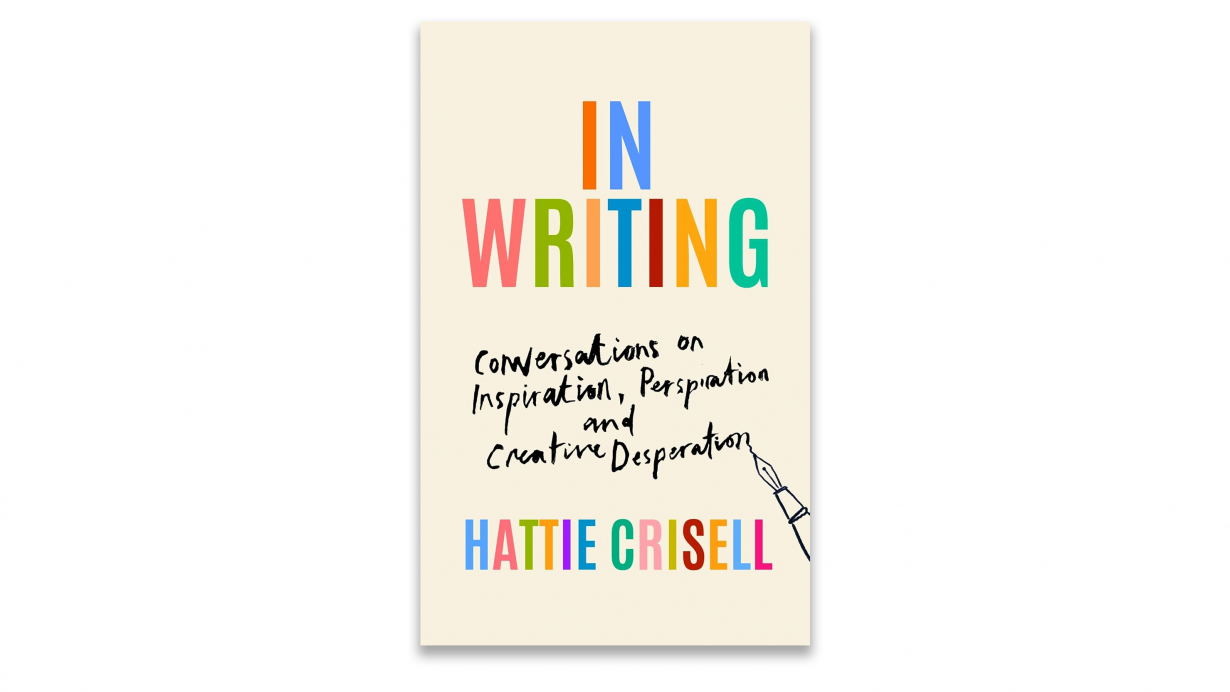Why do books about writing keep getting published? These conversations are a reminder that a writing career is not some ideal flight of fancy but a job like any other

So many interviews with writers dwell on the mythical props and settings of a writer’s life: their legal pads and fountain pens, writing sheds in gardens or cafés where jittery laptop dwellers order multiple drinks. Hattie Crisell’s In Writing is an edited volume of conversations with writers talking about where ideas come from, their successes and failures, and a general overview of a writing life. Early on, novelist Meg Mason describes how anyone who could have their desk under a window and chooses not to is ‘slightly sociopathic’. The next interviewee, newspaper columnist Hugo Rifkind, describes the glorious view out of his home office. He sits with his back to it. For the record, I’m writing this at a desk in front of a window overlooking the quaint street on which I live.
But who reads books about writing? The first (the obvious) answer would be, well, other writers. Those who will nod at comments about agents and readers, and who will smile at screenwriter Georgia Pritchett describing how she always wanted to write, how her first ‘book’ (scare-quotes in the original) was a biography of her hamster. Then there are would-be writers who, too, may have written biographies of their pets but have yet to be published and want to learn about other writers’ processes.
Why do books about writing keep getting published? Stephen King’s On Writing (2000) is a classic; critic James Wood wrote the almost-guide How Fiction Works (2008); Annie Dillard reflected on The Writing Life (1989). They’re very different books about writing and reading, but books on the subject keep getting published because they promise that view through the window and insight into the lore around the writer’s oh-so-quiet world. But I would like to suggest another reason to read them: that against the legend and myth of typewriters and fountain pens, is novelist Anna Hope telling Crisell how, ‘9:47 a.m. is a perfectly good time to start writing’. That is to say, thinking about writing as not some ideal flight of fancy, but as a job. Not an especially easy or hard one, compared to driving a train or teaching children or any other job. But a job nonetheless.
In Writing draws on a podcast of the same name featuring longform conversations with writers. In the book version, Crisell poses the same ten questions to more than 50 writers, then picks and organises their responses. She also introduces each theme – on language, on rewrites, where ideas come from and what’s hard and so joyous about it all – with a short essay of her own. None of it feels particularly revelatory, perhaps because Crisell talks to writers about their practice rather than what they have produced, and the revelation is often in the work itself. Still, it’s a nice reminder of just how normal a writing career can get, beyond the lore and those desks-by-windows. (Crisell herself on receiving edits: ‘Although some of the experiences here might fill the aspiring writer with dread, the important point is that everyone survived and kept on writing.’)
My favourite book about writing is actually a book about reading: George Saunders’s A Swim in a Pond in the Rain (2021), in which Saunders analyses short stories by four Russian writers. It’s a loving and warm account of a lifetime of engaging with work that came before you. Crisell includes Saunders here as an interviewee, and cites A Swim in a Pond in her conclusion, which is no surprise: it’s the kind of book that reasserts the idea that we read in the hopes of finding something that lasts, that we want books to endure over time, that we look to our contemporaries, and to our predecessors, too. That we learn from other people.
Crisell’s book is meant to give a view behind the veil, combined with advice; something you wouldn’t get from only reading someone’s work. Its assertion that writing is a job breaks through the typewriters and mythology. And it reflects the simple challenge of writing, of creative work – that it takes a whole lot of faith to put something in the world that no one has ever asked for. But what I take from Crisell’s conversations are those simple facts of the work itself: it’s 9:47 am and everyone survives.
In Writing: Conversations on Inspiration, Perspiration and Creative Desperation by Hattie Crisell. Granta Books, £16.99 (hardcover)